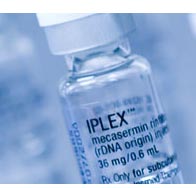 The New York Times ran a powerful feature about a patient with Lou Gehrig’s disease and his search for Iplex, a drug made by Richmond-based Insmed that was just recently made available for patients with the debilitating disease, at least for patients with no other hope.
The New York Times ran a powerful feature about a patient with Lou Gehrig’s disease and his search for Iplex, a drug made by Richmond-based Insmed that was just recently made available for patients with the debilitating disease, at least for patients with no other hope.
It’s a must-read.
“Kathy’s boyfriend accompanied her to Insmed’s headquarters in Richmond, Va., offering to raise several million dollars to underwrite a compassionate use program for Iplex in the United States with A.L.S. patients. But the couple came away with a new understanding: F.D.A. regulations, they were told, prohibit any company from profiting on compassionate use. Even if Insmed could wriggle free of restrictions in the patent agreement, there was little financial incentive for it to invest in making the drug solely for compassionate use by A.L.S. patients.
Kathy was not surprised when weeks passed without hearing back.”
 The New York Times ran a powerful feature about a patient with Lou Gehrig’s disease and his search for Iplex, a drug made by Richmond-based Insmed that was just recently made available for patients with the debilitating disease, at least for patients with no other hope.
The New York Times ran a powerful feature about a patient with Lou Gehrig’s disease and his search for Iplex, a drug made by Richmond-based Insmed that was just recently made available for patients with the debilitating disease, at least for patients with no other hope.
It’s a must-read.
“Kathy’s boyfriend accompanied her to Insmed’s headquarters in Richmond, Va., offering to raise several million dollars to underwrite a compassionate use program for Iplex in the United States with A.L.S. patients. But the couple came away with a new understanding: F.D.A. regulations, they were told, prohibit any company from profiting on compassionate use. Even if Insmed could wriggle free of restrictions in the patent agreement, there was little financial incentive for it to invest in making the drug solely for compassionate use by A.L.S. patients.
Kathy was not surprised when weeks passed without hearing back.”